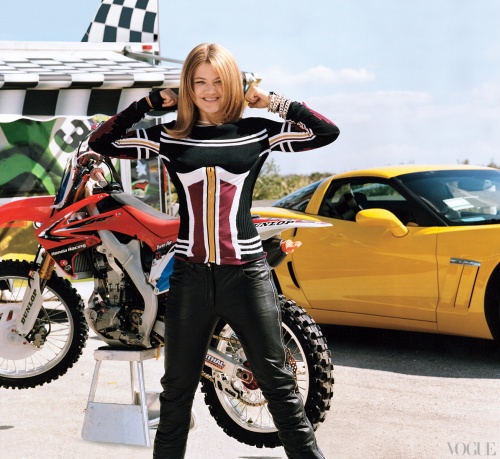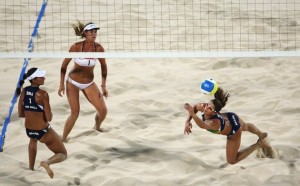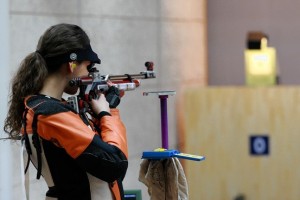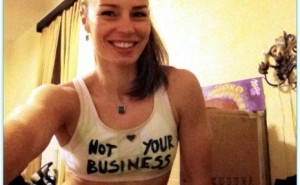I know Amanda Scott as a fellow Gates Cambridge Scholar. But I can't run like her! A very impressive person.
CLICK HERE TO READ THIS ARTICLE ON BLOGHER SPORTS!
2012 is not only a leap year, it’s an Olympic year. That means that in the next few months thousands of hopefuls are gearing up for Olympic Trials to try to secure a spot to represent their country at the summer games, to be held in London. How many of those who have qualified to compete can say that they were also one of the top collegiate scholars in the world? Or that they managed to combine Olympic-level training with Olympic-level academics, studying for a PhD (in Chemical Engineering to boot) while logging in hundreds of training hours?
Amanda Scott can. This 24-year-old Boulder resident will compete at the Olympic Marathon Trials in Houston this Saturday, January 14th. Many train full-time to run at such a high level, but over the years Scott has managed to combine high-level running with high-level achievements both inside and outside the classroom.
Growing up in Virginia Beach, Scott started playing soccer around age four. It wasn’t until her sophomore year of high school that she started running competitively, unlike many younger kids today. But she quickly excelled and ended up pursuing cross country as a collegiate sport, instead of her childhood sport of soccer.
Scott selected Vanderbilt University for its academics, but also for its sports opportunities. She recommends, like Jennie Finch, that girls be proactive about the college athletic and recruitment process. One specific tip is to reach out to coaches via email to establish your interest and a personal connection.A few months before graduating from Vanderbilt in 2009 with a Bachelor’s degree in Chemical Engineering, Scott traveled to Annapolis, MD to interview for a prestigious post-graduate fellowship at the University of Cambridge. Even at such a stressful and crucial time in her academic and professional career, she had to make time to do a workout. Just before her interview for a Gates Cambridge Scholarship (a program that generously supports full-time graduate study through an endowment from the Bill and Melinda Gates Foundation), she squeezed in a training run on the U.S. Naval Academy track. This actually came up while she was being questioned by a panel of world-class scientists, showing she was more than a one-dimensional chemical engineer. That year Scott was one of only 37 Americans selected as a Gates Cambridge Scholar.
While in Cambridge, Scott acquired a Master’s (MPhil) in Advanced Chemical Engineering, and a newfound love and appreciation for running as a sport. Organized, university athletics are far more social and less competitive in England than they are in the United States. Running without any pressure actually led to more races. Scott recalls, “I was having fun just running without any pressure from myself (or coaches or teammates).” In this more relaxed atmosphere she decided to try a marathon as “something different and just for fun.” After completing the London Marathon that year, she was hooked.

A move the following fall to Boulder to pursue her PhD in Chemical Engineering at the University of Colorado at Boulder brought new academic challenges and exposure to a new, outdoor-inspired running community. During the always difficult first year of graduate school with non-stop work she found time to run and train with friends, running another marathon. It became apparent that she might be able to make the qualifying time for Olympic Trials.
To young runners and scholars, Scott offers the following wisdom and advice based on her own experiences: “The more that I enjoy running, the better I do at it. Whenever it becomes too stressful or too much like a job I don’t do as well. You have to do what you are passionate about and then you’ll succeed.” She cautions that you also have to pursue your interests for yourself, and not be too competitive, which can lead to burnout and injuries. Scott credits her parents for being supportive, and not pushy, particularly at a young age.
Following her own advice to follow your passion and find what you enjoy, Scott decided to take a break from academics and work at Crocs. She had previously spent a summer at Nike analyzing materials used in running shoes. Working on performance and recovery shoes allows her to combine her two passions—running and chemical engineering.Shortly after starting her new job she traveled to Indianapolis where she ran a personal best to qualify in 172nd to run in the Olympic Marathon Trials in Houston. Scott knows that this will be an experience of a lifetime. She hopes to run another personal best and meet some of her running idols, like Desiree Davila, Shalane Flanagan, and Kara Goucher.While it’s unlikely that we’ll see Scott running in the Olympics this summer, her remarkable accomplishments both inside and outside the classroom maker her an excellent role model for young girls, showing them that athletic achievements at the highest level are possible while still achieving academically at the highest level, both in the US and abroad. And, who knows, maybe at the next summer Olympics in 2016 the next generation of elite female runners will be wearing a performance shoe designed by runner and chemical engineer Amanda Scott…





